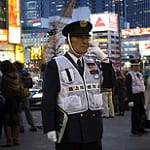Japan’s national government and the Tokyo metropolitan government are at odds about how to treat heat-not-burn (HNB) products as they consider, ahead of the 2020 Tokyo Olympics and Paralympics, regulations on public-places smoking and vaping, according to a Mainichi Daily News story.
HNB products are placed in the same category as combustible cigarettes under the Tobacco Business Act; so both were included in the original draft revision of the Health Promotion Act that the Ministry of Health, Labor and Welfare (MHLW) released in March.
The health ministry has said that it would consider excluding HNB products from legal regulation, but only if their vapor was proven scientifically to be harmless.
Given this, it is likely that HNB products will be treated in the same way as combustible cigarettes in the draft revision of the Health Promotion Act set to be submitted to the regular session of the Diet next year.
Meanwhile, Tokyo is aiming to establish its own ordinance on tobacco-related products, and its draft ordinance released in September explicitly stated that HNB products would be subject to regulation.
However, of the approximately 17,000 comments received from the public about the ordinance, about 2,000 called for HNB products to be excluded from the regulation, and a Tokyo government official has since expressed a more conciliatory stand than in September. “We are still undecided whether to rule out” HNB products from the restrictions, the official said.
Philip Morris Japan says that, compared with combustible cigarettes, its IQOS HNB device reduces, on average, about 90 percent of the toxic substances generated.
And Japan Tobacco says that HNB-device vapor does not affect the indoor environment, and that its risk should not be discussed in the same breath as that of combustible cigarettes.
But the Japanese Respiratory Society released a comment in October saying that as long as there was a possibility that HNB products had a negative impact on health, the use of such products was not recommended.
And Hiroshi Yamato, a professor at the University of Occupational and Environmental Health, Japan, said, “It is a rule of public health to regulate something when in doubt, and unless there is proof that it is harmless”.











